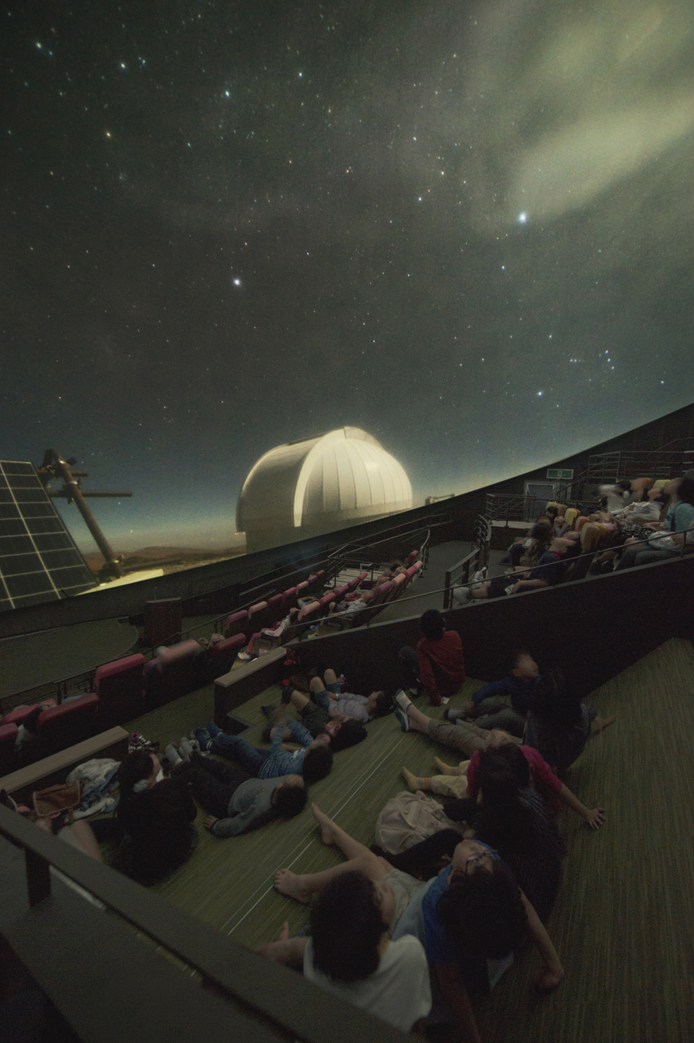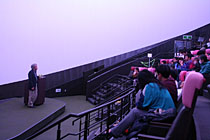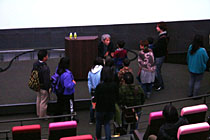
|
TAO Project |
|
The TAO project

|
Starry sky at the summit of Co. Chajnantor can be experienced at Galaxcity in Adachi CityThe planetarium "Multi-Taiken Dome" in the experience facility for children "Galaxcity", also known as Adachi Children's Creative Museum / Adachi Nishiarai Cultural Hall, was renewed on April 1, 2013. At the planetarium, we can experience the starry sky at the summit of Co. Chajnantor in Chile, where our miniTAO telescope has been built!
Based on the agreement of Science Education signed with Adachi City in July 2011, we are providing Adachi City with all-sky images above the summit of Co. Chajnantor. With the cooperation of Adachi City, we set up a high-resolution all-sky camera constantly photographing the sky at the summit, and constructed a system which automatically transfers the images to Galaxcity every 10 minutes. Thanks to the time differences between Japan and Chile, we can make a live stream of the starry sky at the summit of Co. Chajnantor almost in real time during the Galaxcity's opening hours and we can enjoy the stars in southern hemisphere that cannot be seen from Japan. The Galaxcity's planetarium "Multi-Taiken Dome" is the largest dome in the Tokyo 23 wards (23 meters in diameter) and can project images with a world-class resolution, more than seven times higher than full high vision. When the starry sky at the summit of Co. Chajnantor is projected there, we can experience the starry sky as if we were at the top of the mountain.
In addition, you can see the image of the all-sky camera at the summit of Co. Chajnantor at the Galaxcity's web page "Hoshizora Hiroba". At the Galaxcity, "Planetarium Special Lecture" was held on Sunday, April 21. Associate Professor Takashi Miyata gave a lecture titled "Atacama Observatory, the closest place to the universe in the world" under the starry sky of Co. Chajnantor projected on the planetarium. It got a good reception; voices of admirations were heard to see the sky full of stars, and people lined up to ask questions after the lecture.
Copyright(c) 2007-2018 TAO Project, Institute of Astronomy, Graduate School of Science, University of Tokyo
|


